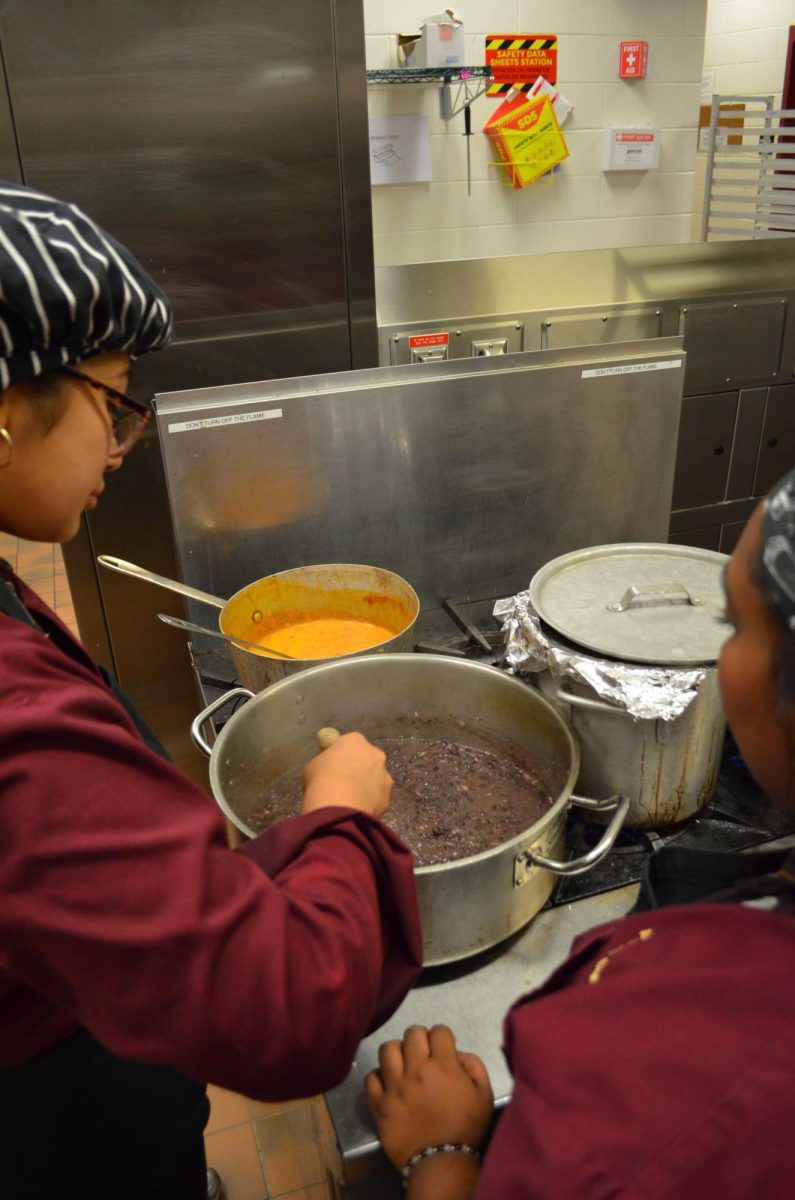Hall Sweeps – Here Today, Here Tomorrow
May 20, 2015
As the school year draws to a close, many students wonder what changes the next school year will bring. One policy that will not be leaving anytime soon, however, is hall sweeps.
Hall sweeps: two words that elicit eye rolls, grumbles of annoyance, and exasperated sighs of “Really?” However, the truth is, hall sweeps have a purpose: getting kids to class on time. The million dollar question is, of course, whether these sweeps are really doing their job.
First, it is important to understand why hall sweeps were initiated to begin with. “Oh, it was a consensus,” explains Paint Branch Principal Dr. Rogers. “There had been a common concern – among students and lots of staff – over the number of students who hung out in the hall after the bell as if the bell was a suggestion.” Dr. Rogers also points out that hall sweeps have worked in millions of schools around the world, with the point always being “getting kids to class on time, nothing more and nothing less.”
Teachers seem to agree that hall sweeps are effective. “Having worked at PB for eleven years, I’ve seen what the hallways looked like in the years prior to the hall sweeps and what they look like now,” comments AP World History teacher Mrs. Lueck. “There is a lot less tardiness and a lot less hall-roaming during class periods. I think that the hall sweeps, in addition to the one minute warning bell and an active security team, have made a big difference.”
Science Department Resource teacher Mrs. Leffler adamantly agrees that
Surrounding the effectiveness of hall sweeps is the question of value. Getting kids to class on time is only half the battle. The real challenge lies in getting kids to grasp the more important value of punctuality, which of course is most difficult for the repeat offenders.
“I would break it into two groups – there’s the group that either one time is enough for them, or they have extenuating circumstances,” says Dr. Rogers. “But then there is a group – a smaller group – who are the repeat offenders. And so we step up those consequences. After the lunch detention, they might have ISI, and then there are parent calls etcetera.”
“Some students go late to class as a defense mechanism because they don’t know the material, or a class is really hard for them, or it all just gets confusing- so they’re avoiding it. You know, it’s task avoidance,” she adds.
Surprisingly, the number of repeat offenders is remarkably low. “We could name for you less than 10 students who have serious issues getting to class on time out of 2100,” remarks Dr. Rogers proudly.
Though these low numbers are clearly a sign of effectiveness, whether the true message of punctuality comes across or not is unclear. “I don’t think hall sweeps really encourage people to be on time,” comments senior Melanie Batchelor. “They just encourage [students] to run so they don’t get caught. I don’t think it really helps much in that sense. I don’t think anybody actually changes the way that they do things.”
“Will we ever be able to eradicate tardiness, period? No,” admits Dr. Rogers with a laugh. “That’s not a goal of mine; I don’t fool myself into believing that. I think it just has something to do with what some people think is important compared to others.”
Perhaps a lesser known side of hall sweeps is the danger of getting caught in the rampage of bodies when a hall sweep is called. Senior Bethany Boyer notes that while hall sweeps do get kids to class on time, as seen by the sprinting in the halls, “It is also kind of bad because when people sprint they can knock people down, and I’ve been pushed over a lot from that, and it can be really dangerous.” Perhaps hall sweeps mean you sometimes just have to take one for the team.
The truth about hall sweeps is that they are effective in getting kids to class on time, which is why they will continue to be enforced. However, whether they succeed in getting kids to actually care about being on time remains to be seen. Perhaps that just isn’t a plausible goal to have. In a sense, it is all about perspective in terms of deciding what is more valuable: getting kids to class on time, or making them truly want to get there on their own.
Dr. Rogers concludes thoughtfully, “We just want it to be clear that it’s important to be in class on time because that’s really what you come here for. What’s the point of waking up, getting dressed, and dealing with the cold to just hang in the halls? It doesn’t make any good sense, and so if you can’t come to that decision on your own, then we’re going to help because that’s our job – to guide you until you develop those habits on your own.”












































